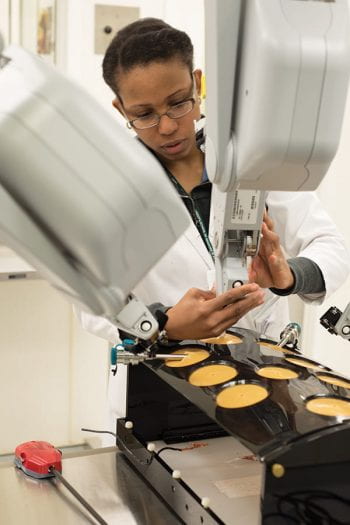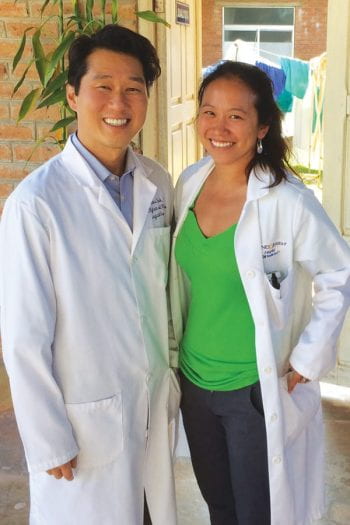Residency Program Excels In Skills Assessment

More than a decade ago, the Washington University General Surgery Residency was at the forefront of programs offering skills training outside of the operating room. The lab-based training approach enables residents to gain skills in a low-pressure, relaxed environment where learning is the focus, not getting things done. Now the residency is among a handful of programs taking extra steps to assess how well residents have learned those skills at intervals after the training has occurred.
The advancements support a national trend: Surgical residencies are moving away from an apprenticeship, time-based model, and toward competency-based instruction. Under the program’s new assessment approach, not all lab experiences can be re-created because of time and resource limits; but junior residents are re-tested twice a year on selected skills and review other clinical scenarios orally with a faculty member. Assessments in later residency years may include demonstrating robotic skills in a training lab or participating in a simulated conversation breaking bad news to a patient or family. Faculty grade residents and give them feedback.
The evaluated skills correspond to milestones set by the Accreditation Council for Graduate Medical Education (ACGME) and the American Board of Surgery (ABS) to measure competencies biannually on a five-point scale for all clinical residents.
“Residents are routinely assessed and given feedback in the operating room, including through the use of a new smartphone app that is being tested through an ABS-approved study at leading residencies,” says Paul Wise, MD, director of the General Surgery Residency Program. “But our lab-based skills assessments can potentially unmask deficiencies in a different way than in the operating room, where an attending surgeon is often guiding residents through the case or influencing their choices.”
If similar deficits surface among multiple residents, perhaps suggesting a deficiency in the curriculum itself, Wise and the multidisciplinary members of the General Surgery Curriculum Committee, led and organized by residents, can add additional training to remediate those competencies.
“Creating validated, effective models that assess whether residents have the skills we want them to have requires a lot of work,” says Wise. “We are doing our best to test those waters here.”
Highlights

A two-month international rotation option at Mzuzu Central Hospital in Mzuzu, Malawi, has been established by the General Surgery Residency. Chief resident Stephanie Chang, MD, was the first to rotate there under the guidance of University of Cincinnati faculty, including Charles Park, MD. Mzuzu Central Hospital is a district hospital and referral center in northern Malawi serving a region of approximately 2.5 million people. The rotation addresses residents’ heightened interest in global education and making a positive impact on people through surgical care, education and research.
The General Surgery Residency adopted the ACGME 80-hour workweek well before the 2003 deadline and met the 2011 revised guidelines. There have since been concerns nationally about patient handoffs and the need for residents to leave operative procedures or critically ill patients because of duty hour limits. To address these issues, the residency participated in the Flexibility in Duty Hour Requirements for Surgical Trainees (FIRST) Trial, which showed that allowing trainees to work longer shifts or take less time off between shifts was not associated with greater risk of patient complications or death. Results appeared in the New England Journal of Medicine.
Lab resident Leisha Elmore, MD, was selected to represent the Society of University Surgeons at the Society of Academic & Research Surgery’s annual meeting in January 2017 at the Royal College of Surgeons in Ireland. (See Leadership section for more detail.)